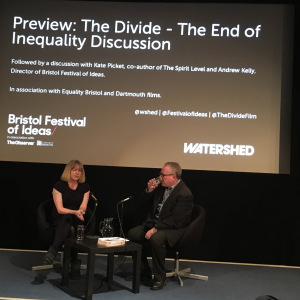International Social Work Day- Promoting the dignity and worth of people; A social work educator’s Perspective
In celebrating International Social Work Day it is important that social work students experience dignity and self worth in the delivery of social work education. I should declare at the outset a vested interest in this issue as Programme Director of an MSc Social Work course at a Russell Group University. My responsibility, alongside that of my colleagues, is to ensure we deliver a rigorous learning experience so we can optimise the chances of developing top quality social workers. This of course is no easy thing. As Jonathan Dickens has acknowledged, the complex and contradictory roles and responsibilities associated with social work means “that change is always a work in progress and never a task achieved” (p22, 2011). How do we respond to the individual challenges and complex needs of our service users in what is a constantly changing environment? There are challenges for all practitioners in responding to increased volumes of work, whilst experiencing reduced capacity, during a period of near constant agency reconfiguration, and at a time of austerity. Additionally these challenges exist when there is significant political and academic discussion surrounding the future of social work as a profession and debate around the best methods of delivering social work education.
I have a responsibility to ensure the students’ learning environment models best practice and introduces skills to support behaviour expected in their engagement with their prospective service user groups. The learning experience of the student group must promote dignity and provide examples of self-worth; failure to do so risks these qualities not transferring to their practice.
Attempts to fulfil this aim are supported by ensuring the structure and content of the programme has at its core the ‘three Rs’, the student experience must be Robust and Reflexive with opportunities to develop Resilience – these are foundational to the programme.
Robustness is ensured through immersion in the latest research and opportunities to share innovative practice. We consider our programme to be research live and practice near. The students are taught by academic staff who are all involved in undertaking research. The areas of research address the broad spectrum of social work including mental health, learning disability, children and families and gerontology. Students are able to access up to date research messages and debate cutting edge methodologies both of which help inform the development of their practice. This supports Croisdale-Appleby`s suggestion that social workers be acknowledged as social scientists. This research robustness is further enhanced by close collaboration with partner agencies. Practitioners are actively involved in the design and delivery of all elements of the programme. In addition the programme has a very active Service User Carer Forum group who ensure lived experiences and the importance of power are shared with the student group. This promotes healthy discussion and debate around the professional role, the relevance of social work values, and intersections of oppressions. It also asks fundamental questions on what constitutes ethical practice. The collaboration between academics, practitioners and service users ensures students are able to draw on a broad range of knowledge and experiences to help inform their professional judgements. It is important professional decision making doesn`t rely on instinct but has a robust evidence base at its core.
Reflexivity is the second R and fundamental to social work learning and everyday practice. The students are told on the first day of the course that on completion in two years there is an expectation that there will be a change in how they understand the world and how they understand the construction of knowledge. I acknowledge the process of learning is deskilling and by definition a painful experience. The use of reflection is a vital tool in the social workers toolkit. Pedagogy informs the variety of teaching styles on the programme and opportunities to engage in group work informed by an enquiry and action learning approach helps facilitate the reflective process. It also ensures the students take responsibility for their own learning. The act of reflection is further influenced and supported on placement by quality supervision, peer support, and additional training opportunities. I expect space for reflection to be a fundamental right for all practitioners and this opportunity should begin at the qualifying stage.
Resilience, the third R, is crucial to practitioners being able to sustain themselves in what is an increasingly challenging practice environment. It helps amongst other things to protect against experiences of vicarious trauma. The emotional component of the social workers role demands all students develop emotional elasticity. It also requires the student is able to develop strategies to help self-manage. This might include developing strategies for chairing difficult inter-professional meetings, communicating with reluctant children or adolescents, developing rapport with adults experiencing mental unwellness, or identifying best ways of de-briefing after a challenging home visit.
The three Rs exist as a golden thread fundamental to the design and delivery of the social work programme.
During this period of rapid and significant change there is I believe a real risk to the golden thread. Whilst engaged in celebrating social work in its international context, recent developments in England suggest dangers are afoot. I have anxieties that the Rs may be lost or at the very least diluted, which may impact on students’ experiences of dignity and worth.
I`m not so arrogant to assume there is only one way to deliver social work education, nor would I suggest the structure we have designed is necessarily the best example. However recent changes to how social work education is being delivered does concern me. Fundamental to this concern is the rapid rise of fast track programmes, and there are number of reasons why:
• First of all the proposed numbers involved. One third of the 4,590 social work graduates (2013-14-figures from HESA) undertook post graduate social work programmes. The proposed advance of fast track programmes both Step Up and Frontline aim to train 950 students by 2019. This figure constitutes two thirds of the current post graduate figure. This proposal will have a significant impact on those research intensive HEIs who currently run social work programmes.
• These changes appear to be ideologically driven with a lack of robust evidence to support the assumption that this method of delivering social work education adds value to that which currently exists.
• The focus on children and families work and the move towards specialism puts at risk the benefits of the generic programme. It is a generally held view of social work academics that the generic programme offers the best opportunity for social work students to appreciate the wider social context of family and human development as a whole life course.
• The fast track programmes with their significantly larger bursaries offers a financially perverse attraction to applicants. This creates a two tier application process with those traditional programmes having their bursary allocation squeezed. There is no guarantee that the fast track programmes will attract the best possible candidates with their mix of social care and life experience, all key to supporting the development of well rounded practitioners. In addition there are questions around diversity. In targeting high performing undergraduates there is the potential risk that the fast track programmes attract students of a certain age, class and ethnicity. This will impact on the makeup of the social work profession moving forward, which will further impact on the experiences of the vastly diverse service user groups.
• Squeezing the learning into a fourteen month period places significant pressures on the student. The complexity of the social worker role demands time is taken to help form effective links between social work theory and practice. There are dangers this pace of learning will result in knowledge deficit. This runs the risk of practice becoming overly bureaucratised, target driven, and risk averse. This manifestation mirrors weaknesses in current practice regimes. The result may be paternalistic practice that pathologises service users and fails to acknowledge the impact of the wider social and political context. The danger is such an approach risks creating an ethically naive profession, where principals of social justice are deemed a luxury rather than a fundamental human right.
It is important on this day that we acknowledge all those involved in learning the craft of social work as well as those delivering social work education. Social work “promotes social change, problem solving in human relationships and ensures the empowerment and liberation of people to enhance wellbeing” (IFSW 2011). This task is both complex and messy. The act of delivering social work education has many challenges, Wenger (1998) suggests that “learning is the engine of practice and practice is the history of that learning”. The suggestion is people’s learning and the environment in which it is experienced influences what they become. I suggest the principles and structures of the fast track movement offer potential dangers to social work education and the qualifying experience. There is a risk that a learning context is being created that negates the long history of research messages relating to social work education. There is a need for this debate to be amplified and the discussion should be informed by robust research to ensure the student social worker experience is maximised. There is a need to ensure the three Rs remain a fundamental part of any social work programme and aren`t replaced by the three D`s, risk of dilution, the risk to diversity and the risk from dogma.
Dickens, J. (2011) Social Work in England at a Watershed—As Always: From the Seebohm Report to the Social Work Task Force British Journal of Social Work Vol. 41 p22
IFSW. Ethics in social work, statement of principles. Available at www.ifsw.org/f38000032.html
Wenger, E. (1998) ‘Communities of Practice. Learning as a social system’, Systems Thinker, http://www.co-i-l.com/coil/knowledge-garden/cop/lss.shtml
 Dr Debbie Watson, Reader in Childhood Studies discusses an innovative research methodology in this blog piece for the Sociological Review. This is part of their special issue on the relationship between sociology and fiction. With colleagues from the ‘Life Chances’ research team, Debbie describes how the project has been using fictional methods to co-create a fictional novel with community volunteers to better understand life on low income for children and families.
Dr Debbie Watson, Reader in Childhood Studies discusses an innovative research methodology in this blog piece for the Sociological Review. This is part of their special issue on the relationship between sociology and fiction. With colleagues from the ‘Life Chances’ research team, Debbie describes how the project has been using fictional methods to co-create a fictional novel with community volunteers to better understand life on low income for children and families.



